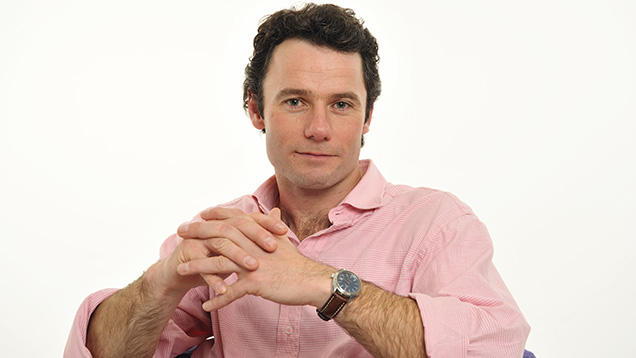Opinion: Crime gangs could turn countryside into Wild West
 Ian Pigott
Ian Pigott Farmers share a universal stereotype to the outside world: wellies, dungarees, hat (style dependent on Continent), straw in mouth and slow drawl.
Contrary to popular belief, however, if you are a farmer it isn’t mandatory to wear wellies and overalls in the pub, to weddings, football matches or funerals.
But we are all guilty of applying stereotypes to professions that we don’t know much about. Bankers don’t wear bowler hats and pinstripe suits. Not all scientists have mad hair. Some doctors have neat handwriting, and not every land agent boasts a wardrobe of raspberry and mustard corduroy trousers.
See also: Have your say on our website forums
Treading carefully to avoid offending my farming friends overseas, I too wrongly apply stereotypes.
In the US, they love a baseball hat and a large tractor. The Midwest farmer is hard working, miles from anywhere and propped up by the Farm Bill.
In Argentina, I picture my friend Martin riding a horse to marshall several hundred thousand cattle across the Pampas.
In Germany, every farm has pigs, an anaerobic digester, a few Claas tractors and is never, ever untidy.
But in Poland or Ukraine, the stereotypes are more edgy. Huge swathes of farms striving for productivity, but tarnished by corruption and crime. Fuel, seed and fertiliser is mysteriously disappearing.
Until recently, I would have conceded that many stereotypes could in part be applied to UK farmers, but surely not organised crime?
But the crime being reported by UK farms isn’t just the disappearance of chainsaws and adjustable spanners. No longer are farms solely the target of petty thieves.
Not long ago it was implausible that someone would steal a tractor or a flock of sheep. Today, fertiliser, fuel, quad bikes, dogs and apparently even wheat are prey to organised gangs and criminals.
The NFU Mutual’s crime survey says it’s costing an estimated £44.5m/year, and this wave of crime is gathering alarming pace.
Only last week I was made aware of a recent spate of fuel thefts. Not from farms tanks, but stolen from major pipelines running across farmland.
In my naivety, I thought that such a practice was the reserve of the Baltic States. I envisaged vodka-drinking men with bushy beards covered in ice, tapping into huge-above ground oil pipes. Millions of gallons spewing into the air before being diverted to awaiting road tankers.
Quite the contrary, a two-foot hole dug discretely on the edge of the field, pipe tapped and fuel siphoned off to an awaiting vehicle sat quietly and unobtrusively in a lay by. At times it has been into large bowsers, but even transit vans with IBCs in the back have been used.
A rare occurence, perhaps, but no longer the reserve of Eastern European farms. How ironic that such brazen theft is being detected when fuel prices are at a four-year low.
It is alarming that organised crime is on the rise in rural areas, but there is so little action to arrest it. Just because the government’s austerity measures have cut policing budgets, farmers shouldn’t become police reservists. As a farmer, I wear enough hats. I have no interest in becoming Dixon of Dock Green.
We must learn from the errors of our ways. The soft attitude to fly-tipping and other episodes of rural theft over the past two decades have made farms an easy target for those of low moral fibre and light fingers.
If the same lily-livered handling is applied to organised crime in rural Britain, we will be drawing comparisons with the Wild West not the Midwest.
Ian Pigott
Ian farms 700ha in Hertfordshire. The farm is a Leaf demonstration unit. Ian is also the founder of Open Farm Sunday.
